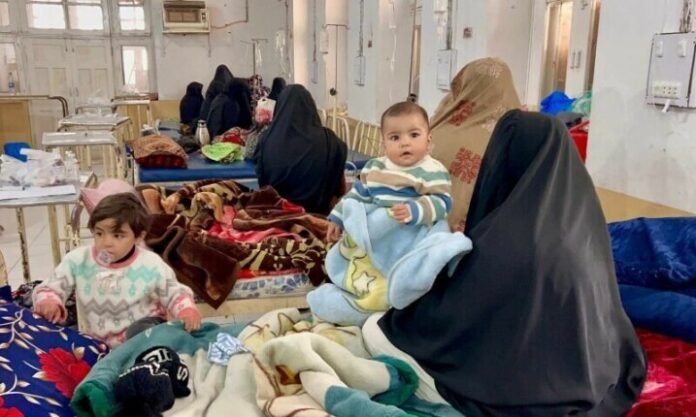PESHAWAR: At least 50 children have tragically lost their lives in Parachinar due to a severe shortage of medical supplies following the closure of roads leading to the city. The closures stem from violent clashes between warring tribes in the restive Kurram tribal district last month, officials reported.
The ongoing conflict has stranded thousands of residents in Parachinar, exacerbating the humanitarian crisis. According to local authorities, the violence has claimed at least 130 lives and left parts of the district, which borders Afghanistan, in a dire state. Food and medicine shortages have been widely reported, as government efforts to mediate the decades-old tribal disputes over farmland have yet to yield results.
Dr. Zulfiqar Ali, a pediatrician at the District Headquarters (DHQ) Hospital in Parachinar, disclosed on Sunday that 51 children have died due to the unavailability of essential medicines. “The situation is deteriorating rapidly,” he said, highlighting critical shortages of medical oxygen and heating equipment needed to treat patients effectively.
Philanthropist Faisal Edhi of the Edhi Foundation corroborated the figures, stating that over 50 children had died in Parachinar’s hospitals due to inadequate medical treatment. He emphasized the urgency of resolving the crisis to prevent further loss of life.
Meanwhile, at least 45 critically ill individuals have been airlifted to hospitals in Peshawar over the past four days, according to Edhi Foundation representative Saad Edhi. However, he pointed out that the transportation of patients alone cannot address the scale of the problem. “The government must reopen the roads immediately to restore normalcy in the region,” he urged.
Saad added that the Edhi Foundation had delivered approximately 2,000 kilograms of medical supplies to Parachinar in an attempt to alleviate the crisis. However, he stressed that the aid was insufficient without the restoration of transport routes.
Ali Hadi Irfani, a Member of the Provincial Assembly (MPA) from Kurram, also criticized the government for its perceived inaction. “Rather than engaging in unnecessary decisions, the authorities should prioritize reopening the transportation routes,” Irfani said, calling for immediate measures to mitigate the suffering of the local population.
The ongoing humanitarian crisis in Kurram underscores the urgent need for a coordinated response to address not only the medical supply shortage but also the underlying causes of the tribal conflict.




